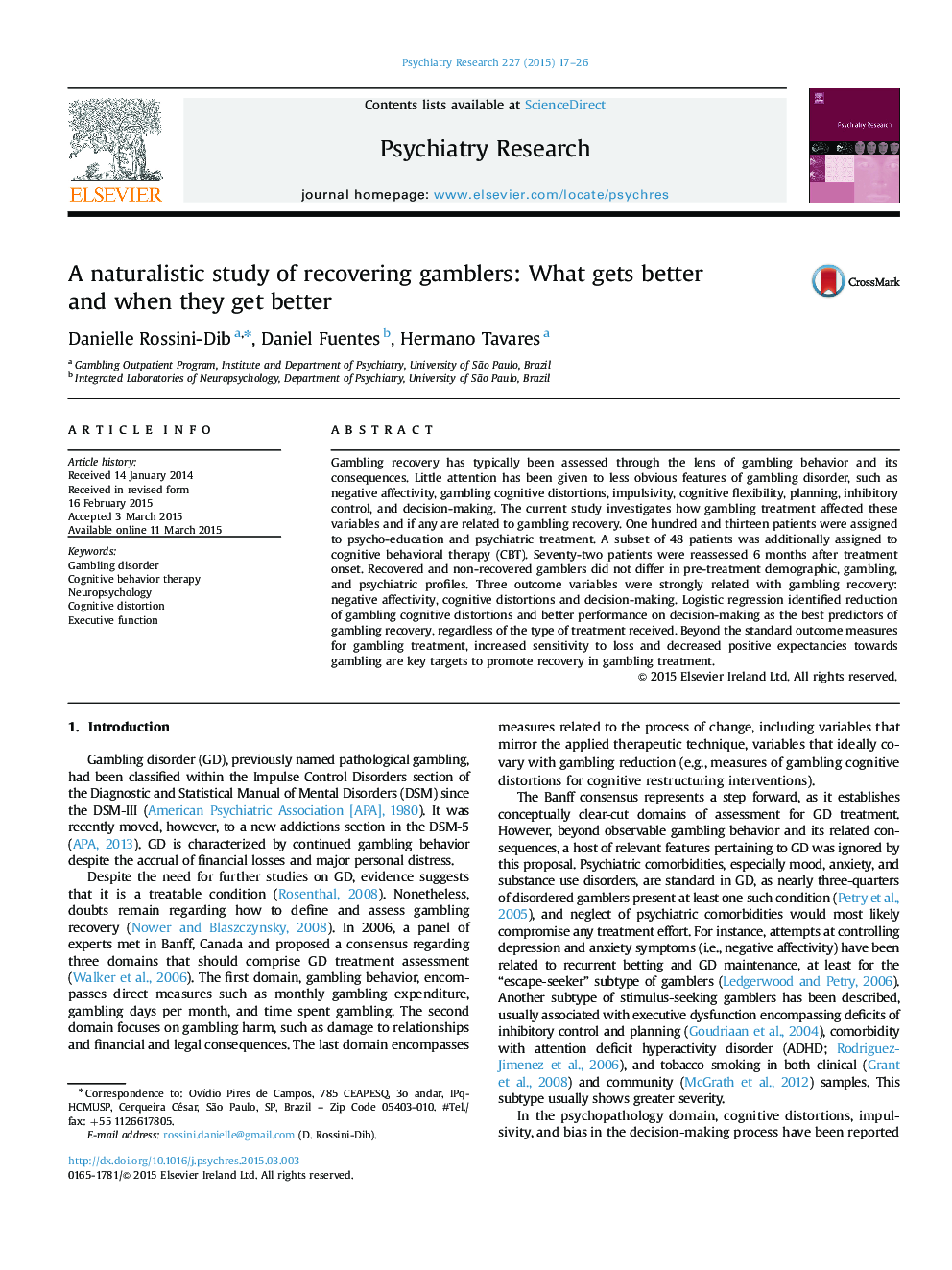| Article ID | Journal | Published Year | Pages | File Type |
|---|---|---|---|---|
| 331901 | Psychiatry Research | 2015 | 10 Pages |
•We investigate variables that affected gambling treatment.•We investigate if any of these same variables relate to gambling recovery.•Cognitive beliefs and decision making, were the best predictors of gambling recovery.•Sensitivity to loss and expectancies are key targets related to gambling treatment.
Gambling recovery has typically been assessed through the lens of gambling behavior and its consequences. Little attention has been given to less obvious features of gambling disorder, such as negative affectivity, gambling cognitive distortions, impulsivity, cognitive flexibility, planning, inhibitory control, and decision-making. The current study investigates how gambling treatment affected these variables and if any are related to gambling recovery. One hundred and thirteen patients were assigned to psycho-education and psychiatric treatment. A subset of 48 patients was additionally assigned to cognitive behavioral therapy (CBT). Seventy-two patients were reassessed 6 months after treatment onset. Recovered and non-recovered gamblers did not differ in pre-treatment demographic, gambling, and psychiatric profiles. Three outcome variables were strongly related with gambling recovery: negative affectivity, cognitive distortions and decision-making. Logistic regression identified reduction of gambling cognitive distortions and better performance on decision-making as the best predictors of gambling recovery, regardless of the type of treatment received. Beyond the standard outcome measures for gambling treatment, increased sensitivity to loss and decreased positive expectancies towards gambling are key targets to promote recovery in gambling treatment.
